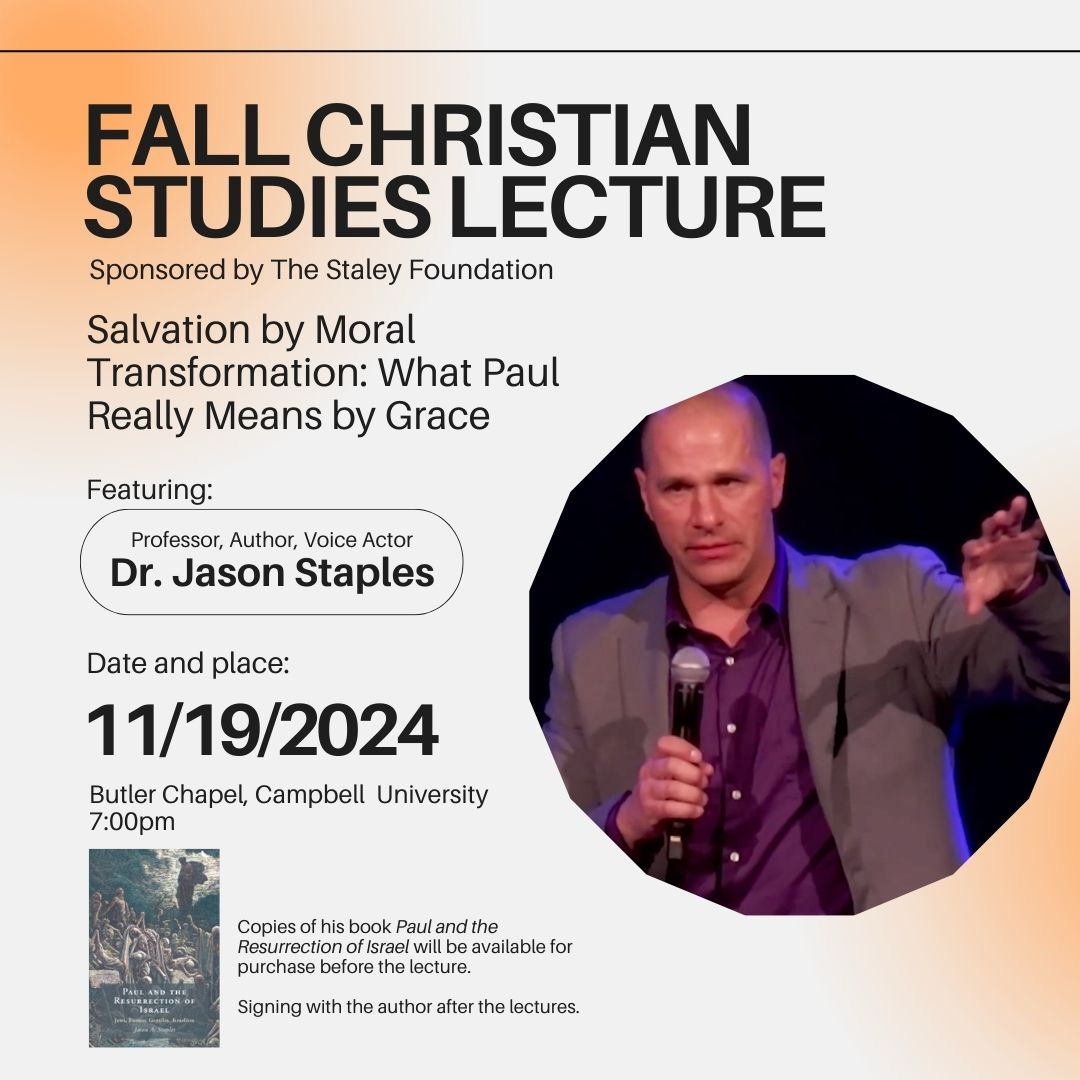A Recent Lecture on Paul's Gospel of Transformation
Salvation by Moral Transformation: What Paul Really Means by Grace
After hanging on for dear life to finish projects and work through a household that just couldn’t seem to shake whatever nasty bug(s) has/have been going around over the past couple months, let’s just say I’m glad to have gotten to this part of 2025.
Late in 2024, I was asked on short notice to translate Luke-Acts for a forthcoming English translation of the Bible—that’s about a quarter of the New Testament for those counting verses. As is my wont, I underestimated how long that would take me, and I ran over deadline a bit and had to put everything else on hold until finishing that around New Year’s Day. Then I had all of a weekend to prepare yet another new course—my twenty-third new course prep—since our semester started a week earlier than usual this year.
Salvation by Moral Transformation
One other thing of note that happened in as 2024 wound down: I was invited to give a lecture for the public at Campbell University in November. That lecture, entitled “Salvation by Moral Transformation: What Paul Really Means by Grace” is accessible through this link. (Edit: video embed finally worked, so it’s now also accessible to view/watch on this page below the image.)
A couple things of note about the lecture. First, somewhere between 1/3 and 1/2 of the way through, it became apparent to me that I was overshooting the audience (mostly undergraduate students) a bit, so I adlibbed much of the rest of it—that’s when you see me start to come out from behind the lectern more. As a result, I didn’t actually finish the full lecture as planned, but I think the on-the-fly change was better for the audience that was actually there.
Secondly, some may observe that something like “salvation by being conformed to the image and character of Christ” would be more theologically precise than “salvation by moral transformation.” Perhaps. But I’ve observed that the former is much more easily glossed over by modern audiences who are accustomed to hearing such theological language and then walking out still believing (and behaving as though) what they do doesn’t really matter. As such, I think the language of “salvation by moral transformation” works better as a corrective.
On to 2025
Now that those things are done, I’m getting to the sorts of things I actually want to do for the next few months: finishing an article for TheTorah.com, writing Substack articles, recording the audiobooks for my first two books, and finally getting into full research/writing mode for my book on C.S. Lewis and his use and interpretation of the Bible.
Then it’s getting a couple book chapters done for edited volumes, a few other articles, working on putting together a couple popular-level books on Paul and early Judaism, finally launching the BiblePod podcast/video channel, and starting initial work on a Romans commentary (more on that last part soon). It’s going to be a busy year, but at least now I’ve (mostly) got my decks cleared and am in position to work on the projects I’m most passionate about (like this Substack!). Finally.



This is great. I would enjoy a post addressing common proof texts for what you call the “gospel of forgiveness”
Jason, thank you so much. I enjoyed the lecture. Very refreshing!! The biggest question I have after hearing this confirmed is what does that look like? What do we embrace and reject in our culture? How do we live life of allegiance?